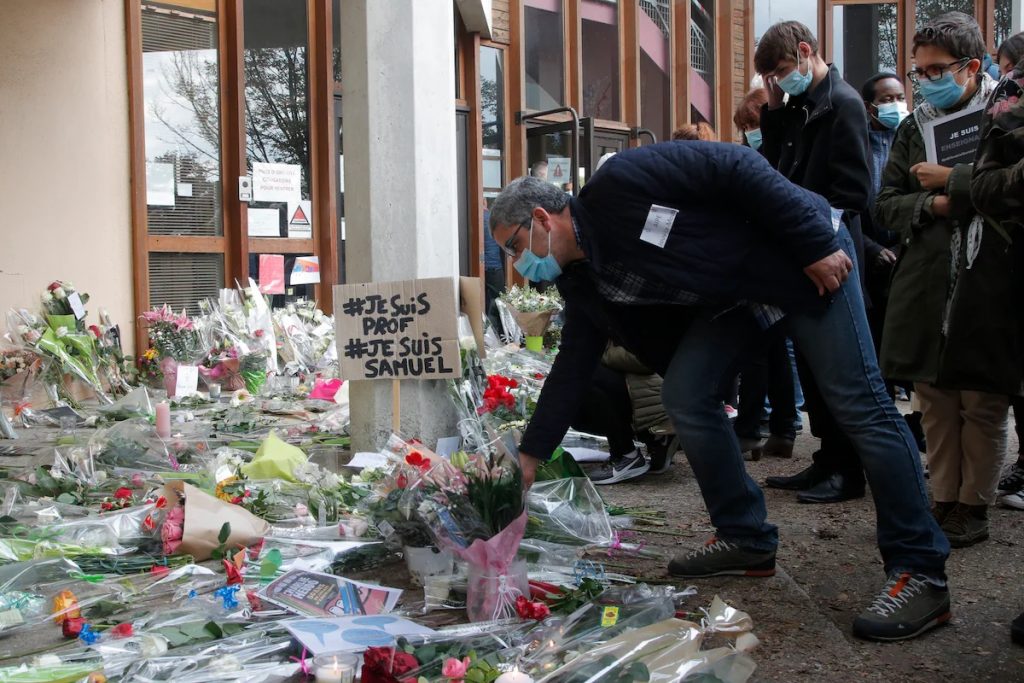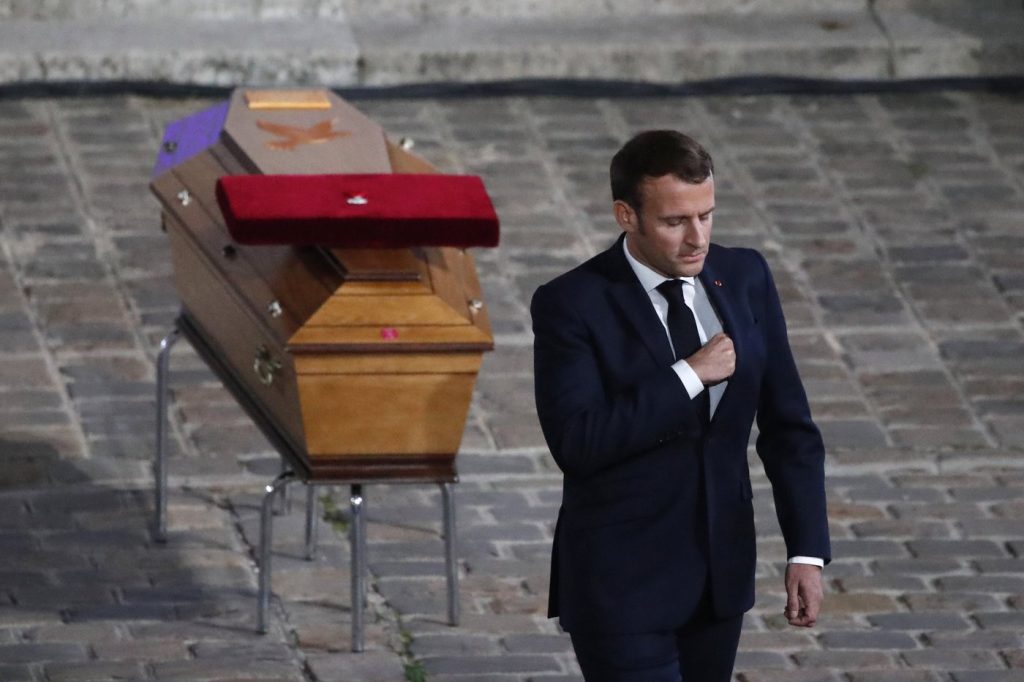8 on trial in Paris over beheading of teacher who showed Prophet Muhammad cartoon

In Paris, eight individuals have gone on trial, accused of encouraging the actions of Abdoullakh Anzorov, the young Chechen man who, four years ago, brutally murdered Samuel Paty, a teacher, outside his school.
Anzorov, who carried out the attack, was killed by police shortly after. As a result, the trial focuses less on the act of murder itself and more on the circumstances that led to it.
Over the course of the seven-week trial, the court will examine how a lie told by a 13-year-old schoolgirl spiraled out of control on social media, sparking an international hate campaign that ultimately fueled Anzorov’s so-called mission of revenge.
The eight individuals facing charges include two men accused of identifying Mr. Paty as a “blasphemer” online, two friends of Anzorov who allegedly provided logistical support, and four others who offered encouragement through online chats.
The murder of Samuel Paty, a respected and dedicated history teacher at a secondary school in Conflans-Sainte-Honorine, a Paris suburb, left France shocked and deeply shaken.
On October 6, 2020, Mr. Paty had given a lesson on freedom of speech, a topic he had addressed in previous classes.
In discussing the 2015 Charlie Hebdo attacks, he briefly displayed one of the controversial cartoons of the Prophet Muhammad, warning students who might be offended to avert their eyes.
The next day, the 13-year-old girl, questioned by her father about skipping school, falsely claimed she had been disciplined for confronting Mr. Paty when he “told Muslims to leave the class so he could show a naked picture of the prophet.”
This was entirely fabricated. In reality, Mr. Paty had not asked anyone to leave the room, the girl was disciplined for unrelated reasons, and she had not even been present during the lesson.
Once the lie hit social media, it spread rapidly. The girl’s father, Brahim Chnina, recorded videos of her repeating the allegations, naming Mr. Paty, and posted them on Facebook.
Local Islamist Abdelhakim Sefrioui amplified this with a 10-minute video titled “Islam and the Prophet Insulted in a Public College.”
Within days, threats poured in from across the world, and Mr. Paty confided to colleagues that the online campaign had made his life “very difficult.”
Anzorov, an 18-year-old Chechen refugee living in Rouen, saw these videos and made a note on his phone that read: “A teacher has shown his class a picture of the messenger of Allah naked.”

He then sought the assistance of two friends, both of whom are now on trial.
One allegedly accompanied him to buy a knife, while the other helped him purchase replica pistols on the day of the attack, October 16, and drove him to the school.
The remaining four defendants, including a woman, are individuals with whom Anzorov communicated on Snapchat and Twitter.
Prosecutors allege they encouraged him in his plans. Though they acknowledge their connections to Anzorov, the defendants deny charges of “terrorist association” or “complicity to commit terrorist murder.”
Defense lawyers for the girl’s father and the Islamist activist argue that, while they publicly criticized Mr. Paty, they did not call for violence.
Meanwhile, attorneys for Anzorov’s friends assert they had no idea he intended to commit murder.
The prosecution, however, contends that the context of the time is crucial.

In October 2020, France was already on high alert following a resurgence of jihadist threats, coinciding with Charlie Hebdo’s republication of the Prophet Muhammad cartoons to mark the trial of those responsible for the 2015 attack.
Just weeks before Mr. Paty’s death, two people were wounded in a knife attack outside the former Charlie Hebdo offices.
Against this tense backdrop, prosecutors argue that publicly condemning Mr. Paty for “blasphemy” effectively designated him as a target.
A year ago, the girl at the center of the case was convicted in juvenile court of making false accusations and received a suspended sentence.
Additionally, five other students were convicted of identifying Mr. Paty for Anzorov in exchange for money.
The trial is expected to conclude in late December, and the French public awaits the outcome in this high-profile case that has reignited debates over freedom of speech, the impact of social media, and the dangers of religious extremism.
Source-BBC





